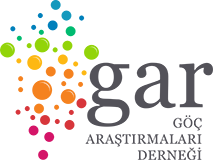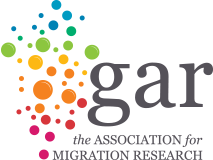The GAR Blog-Need for a Female Lens on Integration Opportunities for Migrants
Ireland Maechtle*
15 May 2024
As of 2022, a report published by Statistics Austria indicated that approximately 118,000 Turkish migrants currently reside in Austria. Turkish community and culture have a large presence in Austria, particularly in cities such as Vienna, with Turkish people making up the largest group of minority immigrants in Austria. The country is known for its large immigration quotas and self-proclaimed over extended refugee program. Additionally, Austria has one of the strictest immigration policies in all of the EU, presenting even more obstacles to the immigration process. The Migration Integration Policy Index (MIPEX) takes note that Austria focuses far more on initial integration than on long term assimilation, which certainly impacts migrants’ potential for long term settlement in the country. (European Website on Integration, 2024)
With these statistics in mind, it is important to acknowledge that social connection during the integration process should be upheld with just as much importance as the language education and other aspects of integration that the state emphasizes. This is especially true because much of the time, proper language integration only takes place when it is used in daily life. If migrants are only using German for necessary communication in work, or for the sake of state required language certification, assimilation is not occurring effectively. This coupled with Austria’s notorious unfriendliness towards migrants after a significant refugee influx in 2015 makes it difficult to assure that migrants would manage to integrate into social circles with native Austrians, where they would experience inclusivity and practice the German in a non-professional setting. (Caritas Austria, 2019)
The presence of the Turkish community in Austria is longstanding and while cultural influence and exchange between native Austrians and Turkish immigrants is evident, the country is still experiencing culture clashes, social exclusion, and low integration motivation in many communities throughout the country. This begs the question, where can Austria do better to ensure that the minority communities residing in the country can truly connect with Austrian culture and successfully integrate into society?
The discussion should not be focused on the ways in which the State does or does not provide required support to legally immigrate and integrate into a society, but rather on the social and culture support the country lacks, specifically from the lens of the female migrant. Migrant women are disproportionately negatively impacted by integration policies. The EU Action Plan on Integration and Inclusion 2021-2027 attempts to bridge this gap but has yet to address the added impact of COVID-19 on migrant women. Generally, supporting migrant women’s integration into host countries is not a top priority in conversations relating to migrants and immigration. (European Commission, 2022) The European Union has taken on individual state responsibilities towards integration by focusing on language training, legal support, and labour market access. However, there is little focus on the social assistance required for integration. And even less so tailored specifically to support women, despite women being statistically less likely to be aware of their legal rights as migrants or access to education, social support, and other necessary assistance. (PACE, 2018)
In Austria, several state-funded organizations provide women with German language training, support in entering the labor market, as well as legal advice and counseling services to protect women against domestic abuse and offer them with safe spaces to succeed in the integration process. That information aside, there are few programs which provide social and cultural engagement exclusively for women. While social inclusion programs operating in Austria are of course also open to women and children, that does not mean that the demographic of migrants engaging in this type of program is inclusive towards them. In fact, female engagement in social organizations is extremely low, which also impacts the attendance of children, overall limiting approximately half of the migrant populations opportunities to connect socially with Austrian community members and with other migrants. Some research has been invested into the impact of “low threshold” in which the social initiative for integration can meet the needs of the target group without requiring large budgets or full-time investment. (PACE, 2018)
Cultural exchange is not a practice that only would benefit female migrants choosing to take part in this type of organization, but also immigrant children. In Austria, schools have been reporting a significant separation between migrant children and native children’s language abilities in German, as well as their social inclinations during school hours. While these disparities are normal and often find equilibrium as children get older, other considerations such as the impact of COVID-19 and the subsequent lockdowns have carried a sharp decline in migrant children’s German literacy and social skills. (Bachinger, A. ., Braunsteiner, M.-L. ., & Zarhuber, K. J., 2023) In a program focused on migrant women and furthermore, migrant mother’s cultural engagement, children can strongly benefit from their mothers taking part in programs which afford women with the opportunity to connect with native mothers and parents. This type of environment also gives children the ability to connect directly with the same social inclusion their mothers are being afforded outside of their education. The benefits of this type of exposure includes but is not limited to, increased language abilities, homework assistance, stronger connection to the local community, and social enrichment.
The significance in focusing on empowering female migrants has a twofold purpose. One being that women are a significantly under supported and undervalued portion of the migrant community which not only impacts every individual woman, but overall statistical approaches on the success of the integration of migrants in their host country. Two, the commonality of these women also being the predominant care giver to child migrants and first-generation immigrant children is significant. In this way women who receive social and cultural support will also pass these benefits to the children in these families. Resulting in more sustainable integration and connection for immigrant children attempting to connect with their native peers in school systems, as well as with the language and educational expectations of the state.
List of state programs in Austria providing integration assistance to women
https://www.frauenintegration.at/über-uns1/der-verein
*Ireland Maechtle is a freelance researcher living in Vienna, Austria. She is passionate about the intersection of diplomacy, migration studies, and research. With a Masters' degree in international relations from the Diplomatic Academy of Vienna, she is a dedicated advocate for effective cross-border communication and cooperation. Her commitment to understanding and addressing the complexities of migration drives her ongoing efforts to foster meaningful dialogue and collaborative solutions in the realm of global diplomacy.
**The ideas and opinions expressed in GAR Blog publications are those of the authors; they do not reflect those of the Association for Migration Research.
***The image is taken from istock.


